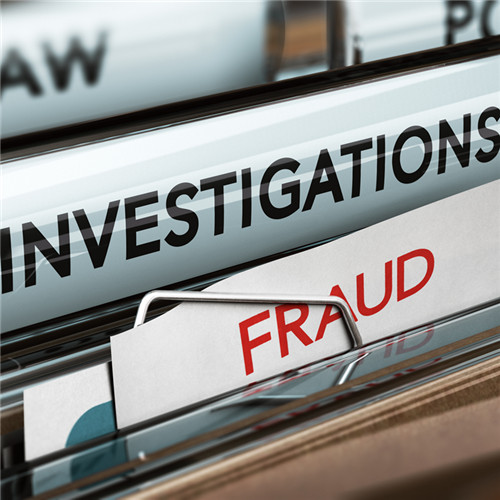What Is the SEC? How Does It Affect My Investments?
As an investor, it’s important to have the peace of mind that your hard-earned money is in good hands and that you won’t fall victim to any nefarious trading scams. It was for this purpose that the federal government created the U.S. Securities and Exchange Commission, the SEC. But what exactly is the SEC, and how does it keep your investments safe?
What Is the SEC?
The SEC was founded as part of the Securities Exchange Act of 1934. At the time, confidence in the markets had hit a new low. The Wall Street Crash of October 1929 had been a major cause of the Great Depression that left millions of Americans broke.
By 1934, Congress was convinced that new laws to keep a tight rein on the securities markets were needed. The SEC was created to oversee and enforce all of these new rules and hopefully decrease the chances of another catastrophic crash.
The SEC breaks its “mission” into three important parts:
To protect investorsTo maintain fair, orderly and efficient marketsTo facilitate capital formation
Five commissioners run the SEC. The U.S. president appoints each commissioner, who then serves a five-year term. Terms are staggered, and no more than three commissioners at one time can belong to the same political party. Once appointed, a commissioner can’t be fired by the president. All of these rules were designed to help keep the SEC’s leadership balanced and fair.
Advertisement
The SEC has five divisions:
The Division of Corporation Finance makes sure that corporations make timely and proper disclosures.Division of Economic and Risk Analysis studies data to help protect investors’ money.Division of Enforcement works with U.S. law enforcement agencies to investigate and prosecute violations of securities law.Division of Investment Management oversees the busy investment management industry, including brokers and advisors.Division of Trading and Markets makes sure that the securities markets remain fair and orderly.
What Does the SEC Do?
Currently, the SEC’s main job is to protect investors by enforcing transparency among U.S. companies. It does this by requiring exchange-listed companies to disclose any important financial or other information to the public. (Private companies must also follow some SEC rules.) This way, both institutions and individual investors have the data necessary for completing their due diligence before making any investing decisions.
Remember the Enron scandal? The energy and commodities company failed because it provided the SEC with false data and kept vital information hidden. The SEC investigated and prosecuted the company and continues to go after any companies whose operations and financials it deems not sufficiently transparent.
The SEC also investigates instances of insider trading and market manipulation. And it requires any firms or individuals that sell stocks and bonds to register with the commission and become subject to its regulations.
The SEC also oversees a private, nonprofit corporation called the Securities Investor Protection Corporation (SIPC). The SIPC is quite a bit like the FDIC, but instead of protecting money deposited in a bank, it insures investment accounts in case a brokerage goes bankrupt.
How Does the SEC Affect Me?
Let’s face it: Unfortunately, a lot of first-time investors and traders have no clue about what they’re doing. It’s easy to get overwhelmed and confused and make a bad decision. The SEC’s goal is to make sure that American investors have all of the knowledge and tools they need to make well-informed decisions for their money.
This makes buying stocks, bonds and mutual funds a whole lot safer. (However, note that the SEC doesn’t regulate derivatives or hedge funds. Likewise, the SEC isn’t responsible for commodities trades.The Commodity Futures Trading Commission, or CFTC, regulates those.)
The SEC also requires the registration of all professional investment advisors that make recommendations about securities. Although their advice is automated, this has come to include robo advisors as well. All robo advisors must be registered with the SEC, so you as the investor can check out vital information about a firm, such as its background and any disciplinary history, before deciding to use it.

Likewise, all U.S. securities brokers need to register with the SEC so that potential customers can do their due diligence.
Is the SEC Always Right?
The SEC itself isn’t free from controversy. In fact, the commission recently came under fire for failing to require commission-based brokers that serve as investment advisors to adhere to a fiduciary standard. This means that some broker-dealers won’t necessarily be compelled to act with their clients’ best interests in mind. (For more on the new fiduciary rules rolled out by the Department of Labor, check out this article)
In addition, although the SEC is supposed to remain politically non-biased, it’s become apparent that under the Trump administration, the commission is hesitant to pursue penalties on corporations. One study showed that, in the 12 months ended September 2017, the SEC had filed the fewest enforcement cases in four years. Chair Jay Clayton believes that penalizing corporations unjustly hurts shareholders.
Still the purpose of the SEC is to protect investors and punish fraudulent, harmful behavior. As an investor, you should make sure to use its vast database of information (found at investor.gov) before making any big decisions regarding choosing a new advisor or investing in any individual security.
Leave a comment